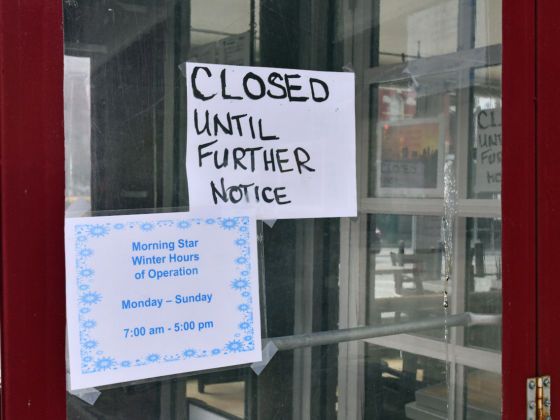The dining scene across the United States is going to be drastically different when life settles after the COVID-19 pandemic. According to a survey by the National Restaurant Association (NRA), 3 percent of restaurant operators have permanently closed, 44 percent have temporarily closed, and 11 percent say they expect to permanently close within 30 days.

110,000 Restaurants Expected to Permanently Close in the United States
The survey polled more than 5,000 restaurant owners and operators, and questions were related to the period between March 1 and March 22. Sales decreased 47 percent across the board, and around 70 percent of operators laid off employees or reduced hours. The effects of the virus haven’t yet hit the country equally, with the majority of early shutdowns occurring in urban areas like New York City and Seattle. Now, with 90 percent of Americans under stay-at-home orders, the outlook for the restaurant industry is only expected to get worse: Around half of the restaurant owners surveyed by the NRA expect to have more layoffs in the next month.
“This is uncharted territory,” Hudson Riehle, the NRA’s senior vice president of research, said in a statement about the survey. “The industry has never experienced anything like this before.”
The government response hasn’t helped ease the stress. President Donald Trump was asked about the NRA’s projections on permanent closures and responded that “they’ll all come back in one form or another,” but that it “might be a different restaurant.” He quickly reiterated that “it may not be the same restaurant, it may not be the same ownership, but they’ll all be back.”
Restaurants operate on thin margins. In restaurant-saturated, food-centric cities, the industry was already a tough one — only around 40 percent of restaurants survived the first year of business before the pandemic. Closing for a few weeks, let alone a few months, means not being able to make rent or pay staff.
Restaurants are seeking a number of methods to stay open, according to Eater. The industry is experimenting with rent deferment, paying with the security deposit, and rent forgiveness, as businesses wait to see if they’re included in a federal bailout bill.
Some government agencies and businesses have tried to help. The IRS and Department of Labor rolled out refundable tax credits to help ease the costs of paying employee sick leave — though that doesn’t help much for restaurants forced to shut down or switch to delivery. The law firm Gauthier Murphy & Houghtaling is working with restaurant industry leaders to secure business interruption insurance payments. It’s impossible, however, to help every impacted restaurant. The NRA survey estimates that in just the first 22 days of March, the industry lost more than 3 million jobs and some $25 billion in sales.
For ways you can help the hospitality industry, check out our guide to organizations accepting donations.